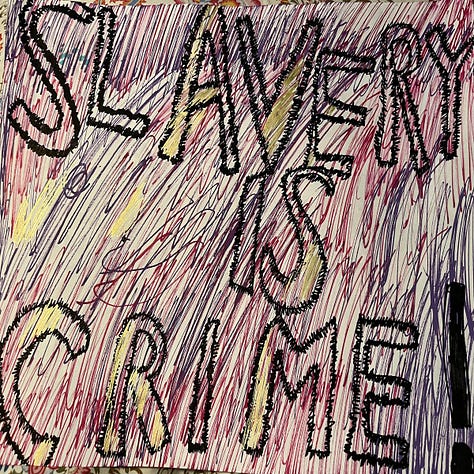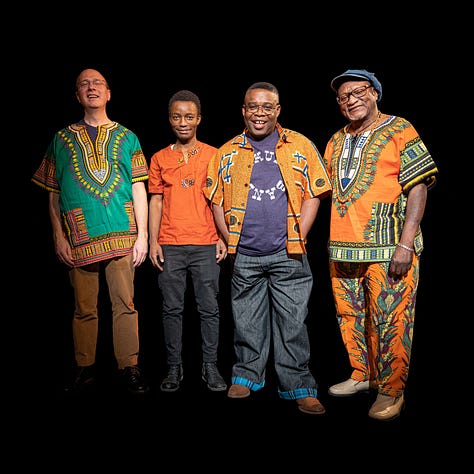Virtuoso guitarist Vumbi Dekula leads Dekula Band on "Slavery is Crime" EP
Gives translation of title Congolese rumba track



By D. Menzies
If summertime feels like it’s almost over, or like it never really begun, maybe some Congolese rumba is in order. This music genre with its mix of guitar and rhythms that feel both fresh and familiar originates from its African namesake countries. With some influence from mid-20th century son cubano (a Cuba blend of African and Spanish influences), the intercultural nature of many popular music forms with Africa, or African-America, so to speak, as a common denominator may explain the familiarity.
After almost two decades of musicianship in Sweden, Vumbi founded Dekula Band in 2008. The band played to vibrant crowds in a Stockholm restaurant and throughout Europe.
Sing-a-Song Fighter founder Karl Jonas Winqvist, a fan of African music in general, would produce Dekula Band’s first album, “Opika,” in 2019 followed by the 2023 solo album, “Congo Guitar,” which was birthed, in part, by COVID pandemic lockdowns.
Though Vumbi Dekula is astute in many styles, including as collaborator, Winqvist, a storied musician in his own right, considers Dekula’s playing virtuoso-level.
“Because, in a way,” Winqvist has said previously, “Vumbi’s guitar playing is like an orchestra on its own.”
During the tail-end of August, Sing-a-Song Fighter dropped Dekula Band’s “Slavery is Crime,” with the title track being the crux of the EP. With that title, my inability to understand the language the song is sung in didn’t stop me from feeling the mix of its celebratory and reflective tones.
Chilltown Blues reached out to Sing-A-Song Fighter, and Dekula bandmembers Vumbi and Gaby Kababa Nkomba provided for translations of the lyrics. What they shared seems to hark back to Vumbi’s early life in North Eastern Congo. Vumbi learned how to play guitar in the Swedish missionary home he grew up in there, heavily influenced by the Congolese styles of music that make one “feel happy to be alive,” Sing-a-Song Fighter’s press release notes, amid and on top of a history of injustices that were decidedly not happy.


